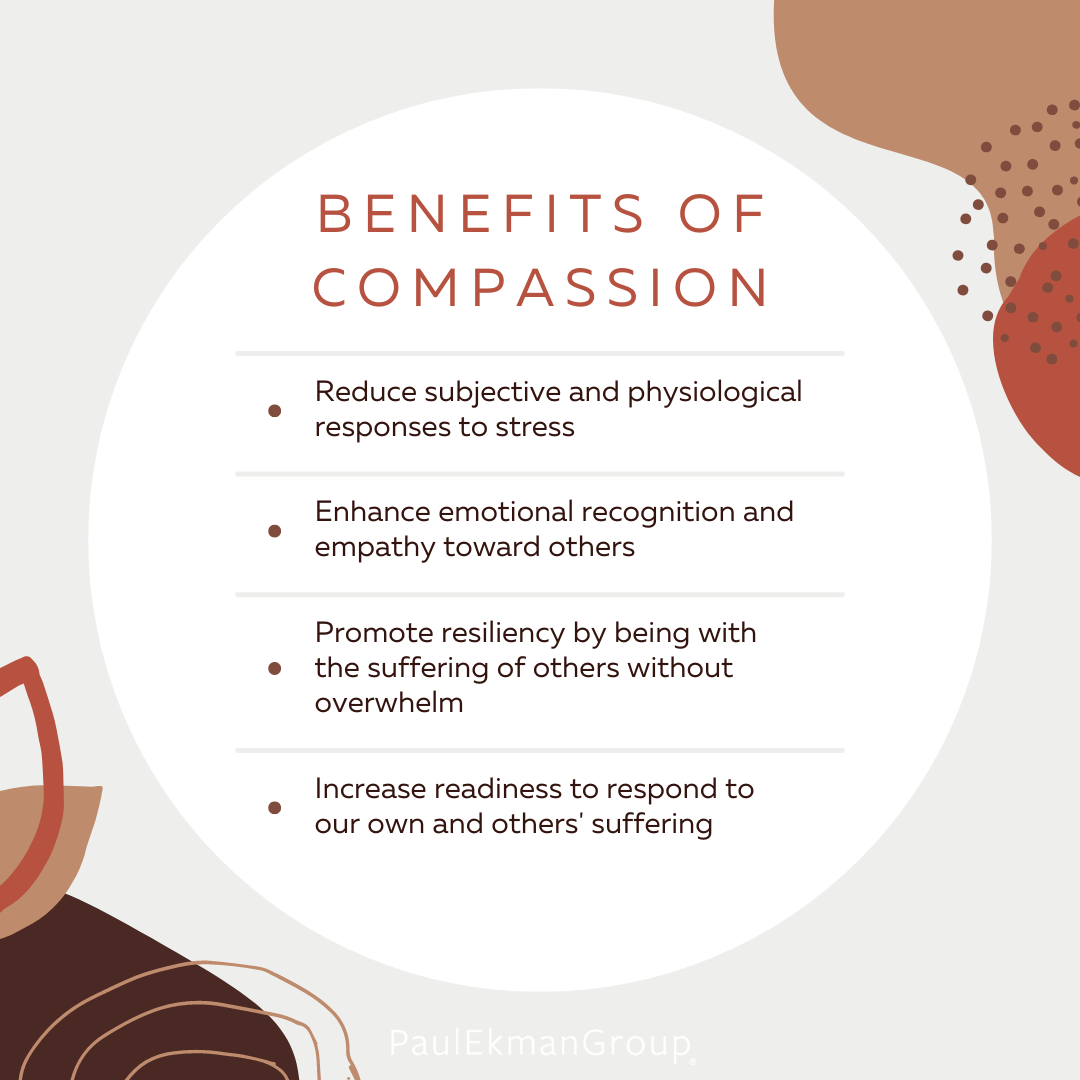
Cultivating Compassion
How the benefits of compassion drive us to engage with it
With an understanding of the different types of compassion and suffering, we are well equipped to begin cultivating compassion. However, before we start, it is useful to reflect upon the benefits of cultivating compassion, as this can fuel and sustain our motivation to develop greater compassion in our daily life.
Benefits of compassion
The benefits of compassion have been well documented by scientific research since the early 2000s (Lutz et al., 2008). Research has shown the cultivation of compassion can:
- reduce subjective and physiological responses to stress,
- enhance emotional recognition and empathy toward others,
- promote resiliency by supporting us in being with the suffering of others without overwhelm, and
- increase our readiness to respond to our own and others’ suffering (Klimecki et al., 2013).
Feeling compassion is energizing and fulfilling. Psychology research has explored the phenomenon of “feeling good about doing good” (Hui et al., 2020). Research on professional care providers reveals the experience of compassion joy. This has been seen with the “helper’s high,” an endorphin release of feeling good studied with people engaged in online charitable giving. These studies have shown that even the thought of giving to others can trigger a good feeling (Moll, 2006). Although this should not be the primary motivation for acting compassionately, we don’t have to deny the feelings of joy that arise from being of service.
Before-and-after study on compassion training
In another study of participants on a three-month intensive meditation retreat who regularly practiced compassion, Alan Wallace and Clifford Saron, a neuroscientist from the University of California at Davis, compared the participants’ responses to different tasks before and after the retreat (MacClean, 2010). In one task, Saron and his team compared the emotional and psycho-physiological reaction of the participants while watching disturbing news clips of wartime soldiers experiencing grief (Rosenberg et al., 2015). In both the pre- and post-retreat, participants reported feeling sad when witnessing the grief of others, but after a sustained period of practicing meditation that included the cultivation of compassion, participants experienced less physiological impact. In other words, before the training in compassion, participants experienced the suffering of others in a way that was distressing, whereas after the training they were concerned about others, but with less personal distress. This ability to be more resilient in processing difficult experiences can be transferred to working with our own difficult emotions. By extending compassion to ourselves, we can find the courage to repair past mistakes and forge new pathways for responding constructively in future emotional episodes.
Learn More about Cultivating Emotional Balance
Developed by Dr.’s Paul and Eve Ekman in collaboration with other emotions scholars and Buddhist monks, Cultivating Emotional Balance is a holistic training focused on finding balance, happiness and compassion in our lives.



